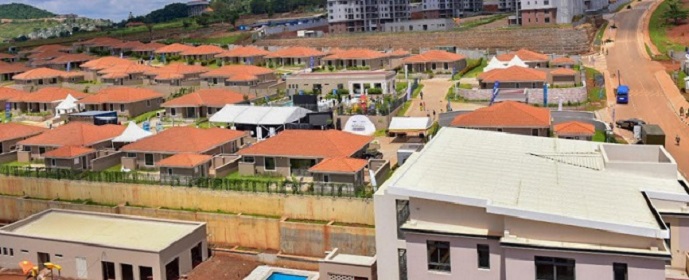
By Executive Editor
Late last year, Uganda’s pension fund placed more than 370 housing units for sale at its Lubowa Housing Project on Entebbe Road in Wakiso District.
The then NSSF Managing Director, Richard Byarugaba, said the Fund spent approximately US$ 73.3 million in setting up the housing units and employing about 4700 both directly and indirectly.
“We have invested close to $31million on construction materials that have been sourced from local industries and have created over 1,500 direct jobs and 3,200 indirect jobs through the construction of this project.”
Byarugaba acknowledged the fact that the houses which consist of bungalows and apartments are very expensive averaging between US$150,000 and US$800,000 per unit.
In a recent Question and Answer session with NTV Uganda’s Raymond Mujuni, the Fund’s Acting Managing Director, Patrick Ayota explained that “Uganda wants to position itself as an investment destination country.”
As such, he said: “We want to attract the best destinations. Your first class companies will not go to a country that does not have class A offices.”
“What they will do, they will fly to Nairobi, set up their head offices in Nairobi, have a liaison office in Kampala, fly back and forth but they are based in Nairobi. Pension Towers is the one of the first Class A offices. So, we can brag as Ugandans. We are an investment destination of the class A offices. The number of inquiries that we have got has been amazing because as a country there are so many opportunities, where are they going to stay? If you are going to have class A offices, where should they stay? Lubowa is a Class A facility. If they come into this country and stay, who benefits? All Ugandans. We have Temangalo which is a bit pocket friendly. We are now developing Kyanja. We are going to do Simbe. So, there is a catering for all that. The mistake people don’t realize is that these are strategic investments for the whole country that benefits the entire country,” Ayota explained.
Currently, the country has a housing deficit of about 2.1 million units, according to the Ministry of Housing and Urban Development, with the low and medium population being the section most in need of what they have termed fair standards accommodation.






